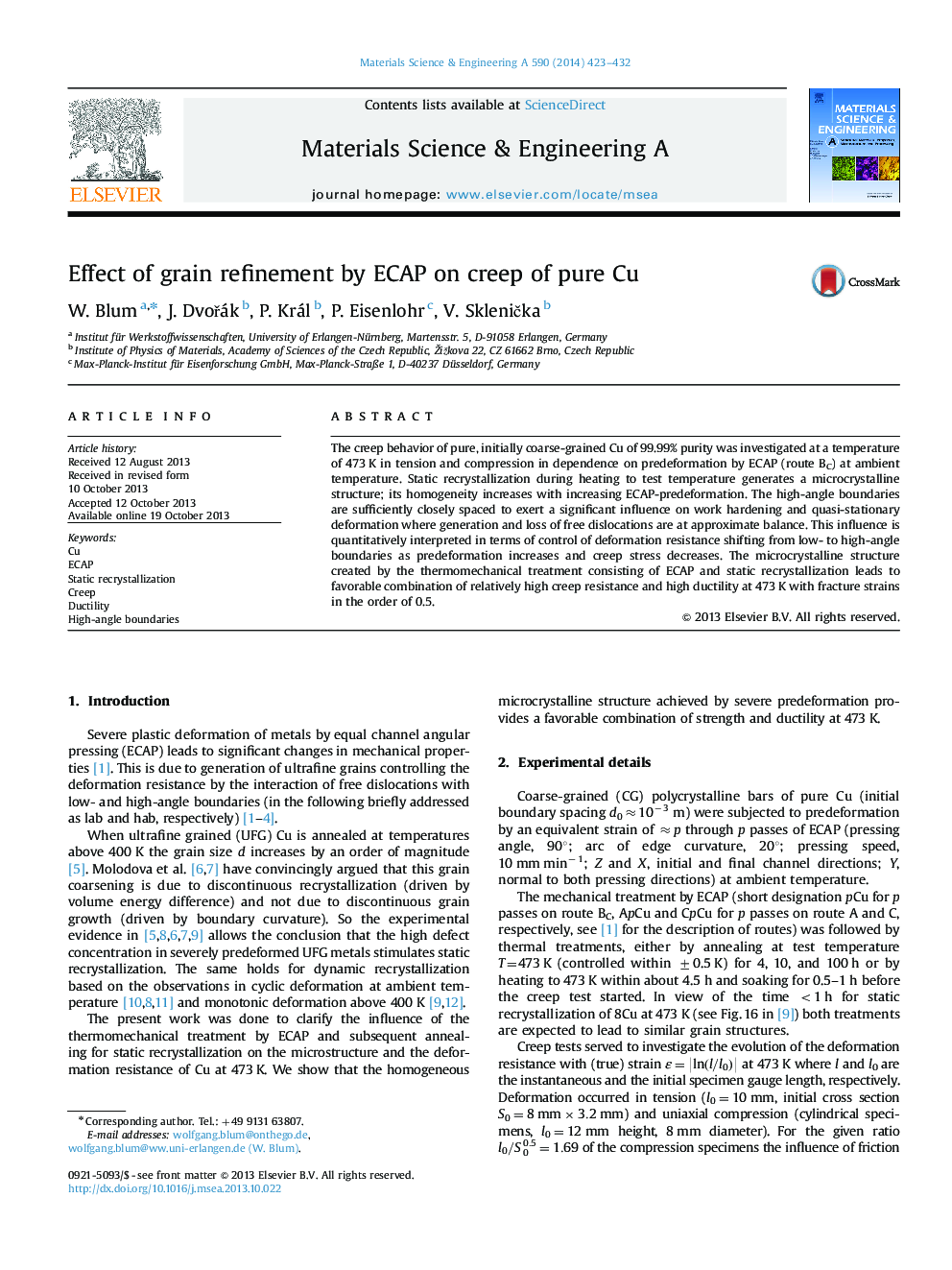| Article ID | Journal | Published Year | Pages | File Type |
|---|---|---|---|---|
| 7982034 | Materials Science and Engineering: A | 2014 | 10 Pages |
Abstract
The creep behavior of pure, initially coarse-grained Cu of 99.99% purity was investigated at a temperature of 473Â K in tension and compression in dependence on predeformation by ECAP (route BC) at ambient temperature. Static recrystallization during heating to test temperature generates a microcrystalline structure; its homogeneity increases with increasing ECAP-predeformation. The high-angle boundaries are sufficiently closely spaced to exert a significant influence on work hardening and quasi-stationary deformation where generation and loss of free dislocations are at approximate balance. This influence is quantitatively interpreted in terms of control of deformation resistance shifting from low- to high-angle boundaries as predeformation increases and creep stress decreases. The microcrystalline structure created by the thermomechanical treatment consisting of ECAP and static recrystallization leads to favorable combination of relatively high creep resistance and high ductility at 473Â K with fracture strains in the order of 0.5.
Related Topics
Physical Sciences and Engineering
Materials Science
Materials Science (General)
Authors
W. Blum, J. DvoÅák, P. Král, P. Eisenlohr, V. SkleniÄka,
